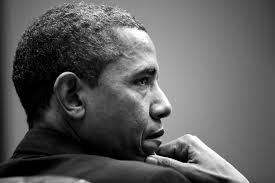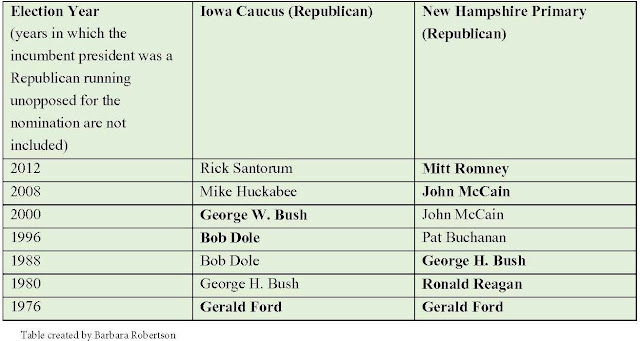If
you like this blog, this or any other article, please don't hesitate to
subscribe and to share it with others via email, Facebook or other
social media outlets!
Justice Scalia’s death on Saturday, February 13th
set off a political earthquake, making what was already a very interesting
presidential election year even more interesting. And, as if our politics were not divided
enough, Scalia’s death has set up a mega showdown between Republicans in the
Senate and the President, and has raised the stakes of the presidential
election. Before Scalia’s body had
turned cold, there were announcements on both sides regarding the next
nomination. The President stated that he
will, of course, nominate someone in “due time”, while the Republican Senate
leadership did not mince words in letting the President know that any
nomination by him would in effect be a waste of time.
It is understandable that Republicans, who are typically
conservative in ideology, do not want to see a Democratic president put a third
liberal on the bench. Before Scalia’s
death the conservative justices, those appointed by Republican presidents,
totaled five and thus made up the majority of the justices, with the remaining
four justices being those appointed by Democratic presidents and liberal
leaning in ideology. President Obama
appointed two of those: Justices Kagan and Sotomayor. The next appointment, if made by a Democratic
President will tip the balance of the court in favor of the liberal point of
view; but if made by a Republican president will maintain the current
conservative majority makeup of 5 – 4, since Scalia was a loss on the
conservative side. Alas, the current
president has the Constitutional authority to nominate a replacement, and the
current president is a Democrat. Thus
the showdown and promised efforts by Republicans in the Senate to delay.
I would warn Republicans that the strategy of delay and deny
is a gamble, and a gamble that is fraught with risk. Here’s why:
Institutional Assumptions
Republicans are gambling on the hope that a Republican will
win the election in November and take the White House in January of 2017, a
time when they would rather see a nomination made and confirmed since it would
be made by a Republican president. They
are also gambling on the hope they will maintain control of the Senate, which
they only have control of by just a few seats.
Those are strong assumptions with no guarantee of coming to
fruition. The national electorate leans
Democratic currently according to opinion polls that ask Americans to identify
their party allegiance. Second,
Democrats have higher turnout in presidential election years than they do in
the midterms. Therefore, Democrats
should not again feel the whipping they felt in 2014. Also, the Electoral College outcome may favor
the Democrats, which of course is largely determined by the popular vote and
turnout in each individual state. In
2012, Romney, the Republican candidate, only won two of the many swing states
Obama had won in 2008. Republicans would
have to do much better in the swing states in 2016 to take back the White
House. If you look at the margin of
victory in terms of the popular vote for President Obama in many of the swing
states in 2012, a Republican victory seems a steep hill to climb. As for the swing states in 2016, the
Democratic candidate could lose Ohio, Florida and North Carolina, and still win
with 285 electoral votes; 15 more than the 270 needed.

Then, of course, there is the Senate.
If Democrats win the presidential election,
it is extremely likely they will gain seats in the Senate since a presidential
win would mean a national mood in favor of Democrats.
They may even take back the Senate given the political
reality facing Senate Republicans in November of this year.
In 2014, Democrats faced the challenge of
maintaining their hold on seats in “red states” that lean Republican and
conservative in their political and ideological makeup.
Given the heightened partisanship, this was a
difficult challenge that, in the end, Democrats lost.
The Democrats lost enough seats to lose their
majority hold on the Senate.
This year,
however, will see a turning of the tables.
Most of the one-third of Senate seats up for election in November are
held by Republicans, and enough of those are held in “blue states”.
Therefore, it is Republicans that may see
losses this year.
Democrats only need to
gain about four seats to take majority control of the Senate.
The final outcome may be the worst case
scenario for Republicans: a Democratic Senate
and a Democratic President.
Even a loss of one of these would undermine their hypothesis
that it is better to delay a nomination until 2017. A new Democratic president can still nominate
a justice, and a Republican Senate that chose to delay in the previous term
would not be able to continue with that strategy in the new term. A win of only the Senate by Democrats, on the
other hand, could allow President Obama a chance to rush in the appointment and
get it confirmed by the new Senate that takes office the first week of January
before his Republican successor is sworn in after mid-January.
The Electoral Risks
Then there are the electoral risks. A Republican strategy to refuse to consider,
hold hearing over, or vote on an Obama nomination for almost a year may
undermine them at the polls this November.
This strategy would feed into the already existing narrative of
Republicans as obstructionist and anti-Obama whatever the costs. This narrative gained a great deal of momentum
during the government shutdown in October of 2013. A Republican political strategy that left the
Supreme Court short one justice, and risked major decisions facing the Supreme
Court to be decided by a lower appellate court would only remind voters of this
narrative and feed it further. Sure, the
Republican base will be fine with this trade off of stopping Obama and a
liberal agenda in exchange for the cost of leaving the seat vacant for a year
or longer. But it is not the Republican
base that will tip the election one way or another. It is moderates on both sides and
independents. This important group of
voters are not willing to sacrifice the functioning of government for an
ideological and political agenda. They want
government to function. If it does not,
they will likely blame Republicans and their strategy of delay and deny. Because the electorate is so closely divided
between Republicans and Democrats, it is crucial to win the moderates of both
sides and the independents in order to win the election. Not only does their support impact the
chances of the Republican candidate winning the presidential election, it will
likely impact the vote for the various Senate seats that Republicans will be
defending in November of 2016, especially those in the left leaning states.
A Safer Option, but a Risk Nonetheless

Actually working with President Obama may be a better option
for two reasons.
However, the trade-off
for working with the president is to upset the base.
As a result, Republicans may choose to wait
until the day after the election to end the opposition-laced rhetoric and
beginning considering an Obama nomination.
Of course, if they keep the Senate and win the White House they will
simply wait out the president.
Unfortunately
for Republicans, however, they cannot see into the future.
Therefore, a wait and see approach still
means they are taking the electoral gamble of turning out moderates and
independents against them, which will fulfill the very prophecy they are seeking
to avoid.
Therefore, this electoral risk
is the first reason they should consider coming to the table before the election.
The second reason involves the justice they
are likely to end up with.
If the President wants to replace Scalia before the end of
his term he will have to go with a consensus nominee that Republicans will
agree to, or have agreed to in the past (a justice on a lower federal court
bench). This means that a justice that
is too far left is not an option for the President. He will have to go with a moderate, much like
George W. Bush had to when he chose John Roberts for the Chief Justice
position. If, however, Republicans
refuse to consider a nominee and Democrats have a victory in November, one of
two things may happen. Either President
Obama will rush through an appointment in January if Democrats have the Senate
but not the White House; or, a new Democratic president will make the
nomination. The worst case scenario facing
Republicans, as stated above, is a Democratic Senate and White House. In two of these three scenarios, the nominee
is likely to be further to the left than Republicans would have gotten under
Obama if the nomination had been made before November. If Democrats can make an appointment without
facing significant opposition from Republicans, they have the flexibility to
nominate a much more liberal candidate than President Obama would under his
current constraints.
It may be the President holding the right cards in this
one. If that’s the case, then he will
just let Republicans do what they are going to do. Either way, he may win in the end.
If
you like this blog, this or any other article, please don't hesitate to
subscribe and to share it with others via email, Facebook or other
social media outlets!







